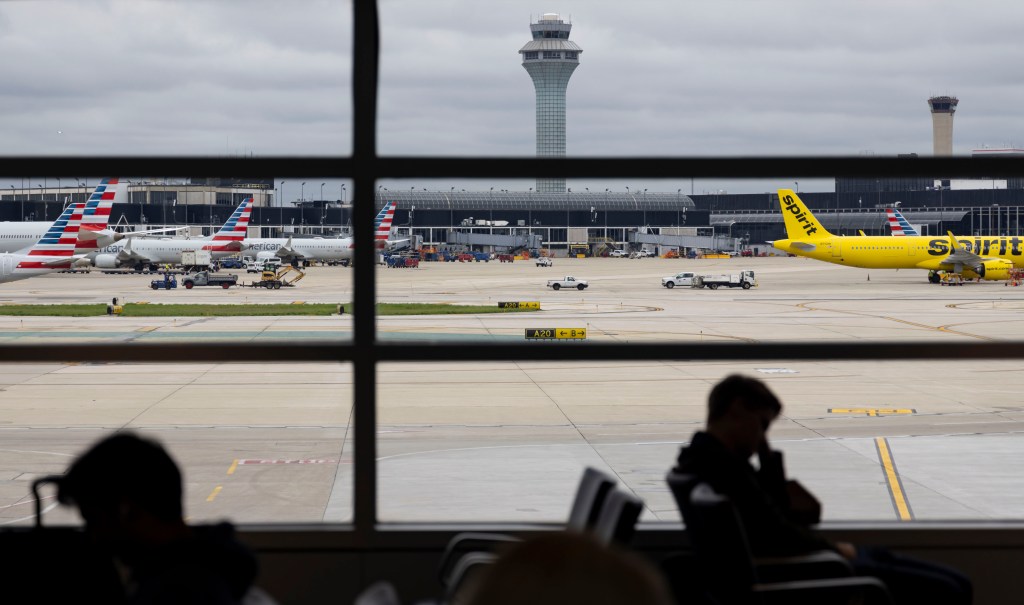Summer air travel is in full swing, and people are getting ticket shock at what it costs to fly.
Airlines use a complex system to price their tickets. This complexity means that it is highly likely that the prices paid for most tickets on any given flight are different. Such price differences are a consequence of the hub-and-spoke system used by legacy airlines such as Delta, United and American and dynamic pricing models that squeeze every last dollar out of every seat to make it more likely for airlines to stay profitable.
This economic pricing model is part of a larger yield management system, which prices tickets based on route competition, seat availability, anticipated demand and time until flight departure.
One consequence of this model is hidden-city ticketing, sometimes referred to as skiplagging. Hidden-city ticketing exploits the economic model employed by airlines. Airlines must compete on every route that they offer tickets for.
If a person wishes to fly from Roanoke, Virginia, to O’Hare International Airport, they can purchase a direct flight on United. Alternatively, they can purchase a connecting ticket on United from Roanoke to Madison, Wisconsin, with a stopover at O’Hare, and not use the Chicago-to-Madison segment. In doing so, they may save a little money.
For some people, this makes no sense. Why would someone buy more flying? Because direct flights, particularly out of or into hub airports, are valued by flyers and can be priced at a premium compared with connecting itineraries.
Airlines are not pleased when travelers exploit this loophole in their economic model. United’s contract of carriage explicitly forbids such practices, threatening penalties that may affect a person’s frequent flyer accounts and ability to fly in the future. Even legal action is proposed as a possible response and remedy.
Yet the concept of hidden-city ticketing has parallels to pricing models used in other service industries.
Cellphone, television and internet providers offer bundled packages that may include a collection of channels and services, some of which customers are not interested in. If users decided to individually purchase only those services they would like, they would find that their total cost may be higher. For these providers, it is considered a smart business strategy to be a one-stop service provider.
Certainly, there are differences between cellphone, television and internet providers compared with air travel. However, the principle of using less than what you purchase to pay less for what you want is the common thread woven through both.
So should hidden-city ticketing be banned?
As in most things in life, there are risks, and there are rewards. If a traveler wishes to exploit this loophole in air ticket pricing, they may be rewarded with a lower cost to travel. They will also be assuming some risk that their planned stopover airport gets changed due to a flight cancellation or disruption. Airlines have no obligation to deliver the same route that was purchased, just the same destination.
Airlines should be happy that some travelers have deciphered the intricacies of hidden-city pricing. It provides evidence that their yield management models are working and that they are reaping the benefit of the economic model that produces the most revenue from their full schedule of flights.
Moreover, the number of people employing hidden-city ticketing is likely small compared with the total number of travelers they carry. This means that the economic impact of hidden-city ticketing is also negligible, even if the optics of people using the strategy may be what is at the core of the airline dislike of the practice.
Airlines have even attempted to sue travel websites that facilitate hidden-city ticketing. Ironically, such tickets can be purchased directly on airline websites. The only requirement is knowing what city to set as your final destination, while passing through a hub airport, which is your ultimate objective. With practice, finding such cities becomes quite easy.
Airlines can end hidden-city ticketing by pricing tickets linearly, with more travel costing more dollars. They could also price all direct-flight tickets based on the lowest possible hidden-city itinerary. In both cases, the revenue lost by the airlines would be so severe as to threaten their solvency, something that hidden-city ticketing will most certainly not do.
Hidden-city ticketing is not going away anytime soon. There is nothing intrinsically illegal about it, even if it gets under the skin of airlines. It is also a self-inflicted wound (and cost) of their highly successful economic model.
Congress recently reauthorized the Federal Aviation Administration. If the FAA really wants to help passengers, it should work across all airlines to create a standardized set of principles common across all contracts of carriage that all stakeholders can understand and agree to. It would also be a good time to remove threats against passengers associated with hidden-city ticketing, accepting that it will occur.
The most reasonable policy is to place the burden of responsibility on passengers who choose to use this ticketing approach, so if flights are disrupted, they, not the airlines, must accept the consequences of not flying through their connecting city. With such a sensible policy, hidden-city ticketing will likely remain a small fraction of all tickets issued.
Hidden-city ticketing elicits the phrase caveat emptor” — let the buyer beware — but with such knowledge, it may save some a few dollars.
Sheldon H. Jacobson, Ph.D., is a professor of computer science at the University of Illinois at Urbana-Champaign. A data scientist, he applies his expertise in data-driven, risk-based decision-making to evaluate and inform public policy.
Submit a letter, of no more than 400 words, to the editor here or email letters@chicagotribune.com.


